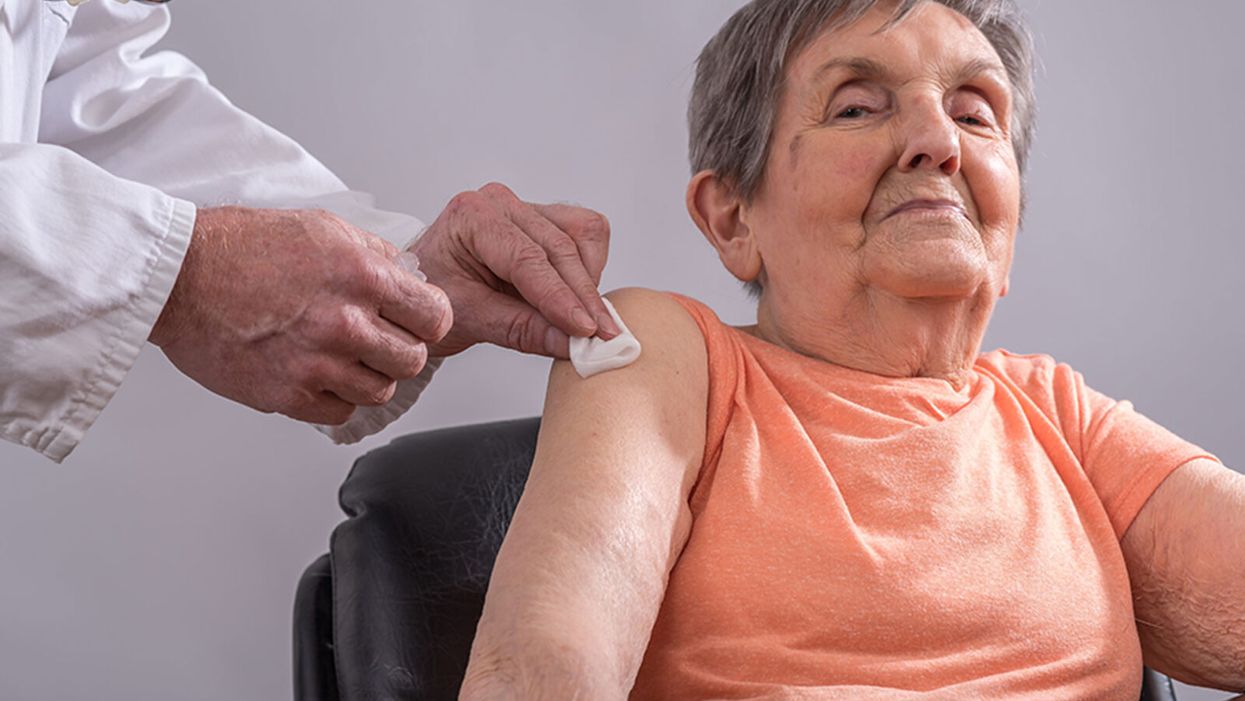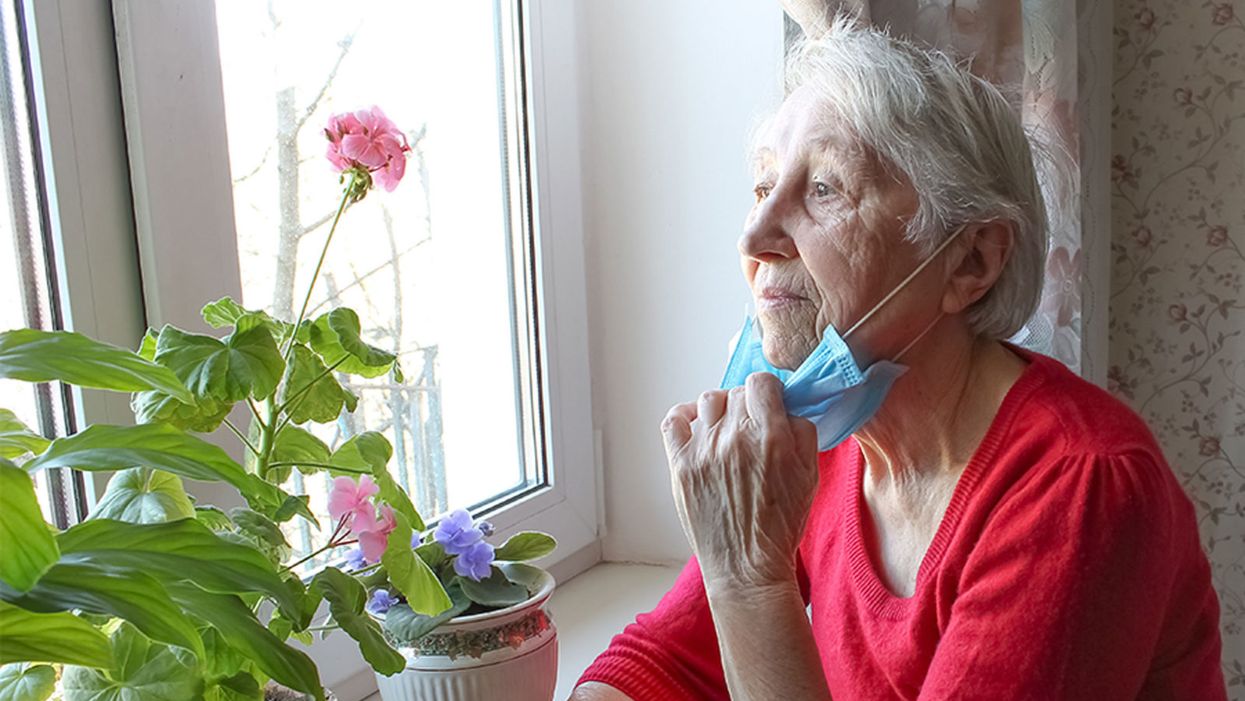Drugs That Trick Older People’s Bodies to Behave Younger Might Boost the Effectiveness of a COVID-19 Vaccine
Because vaccination may be less effective in older people, it is imperative to test now whether immune boosters could help the efficacy of a COVID-19 vaccine in the elderly.
In our April 23rd editorial for this magazine, we argued that addressing the COVID-19 pandemic requires that we both fight the SARS-CoV-2 virus and fortify the human hosts who are most vulnerable to it.
Two recent phase 2 studies in older adults have suggested that a new category of drugs called rapalogues can in some cases increase the immunization capacity of older adults.
Because people over 70 account for more than 80 percent of reported COVID-19 deaths globally, this means we must do everything possible to protect our elders.
A range of recent studies have suggested that systemic knobs might metaphorically be turned to slow the cellular aging process, making us better able to fight off the many diseases correlated with aging. These types of systemic changes might be used to stem the specific decline in immunity caused by aging and to increases the biological capacity of elderly people to effectively fight viral infection.
But while helping make older people more resilient in the face of a viral infection is critical, that's not the only way geroscience can help in our fight against this deadly pandemic.
As we move toward hopefully developing one or more COVID-19 vaccines, researchers must more fully appreciate the ways in which traditional vaccines can be less effective in older people than in younger ones.
Repeated studies have shown that the flu vaccine, for example, has lower efficacy in older people than in younger ones. Older people tend to develop fewer antibodies after being vaccinated because a subset of their white blood cells, called T cells, have become less responsive over time. Some inflammatory peptides that increase with aging are also preventing the action of those T cells.
This is why there's a distinct possibility that a future COVD-19 vaccine, particularly one utilizing the traditional attenuated virus approach, could be less effective in older people than in younger ones.
Given the extreme urgency of developing vaccines that work well for everyone, we need to make sure that researchers are exploring all of the ways our elders can be best protected. While generating a vaccine that works equally well for people of all ages would be ideal, we can't count on that.
One way to bridge this gap might be to trick the bodies of older people into behaving as if they are younger just at the moment what a vaccine is delivered by giving them pre-immunization boosters.
Two recent phase 2 studies in older adults have suggested that a new category of drugs called rapalogues can in some cases increase the immunization capacity of older adults. Use of the drug for a short time period before flu shot immunization increased the antibody production for the flu and resulted in a 52 percent decrease in the occurrence of severe diseases needing medical help or hospitalization. This short-term pre-immunization intervention can also decrease the severity of serious respiratory tract infections, the deadliest manifestations of COVID-19, by similar magnitude. These patients also had almost half the incidence of the non-COVID-19 coronaviruses associated with the common cold.
The fact that those people were protected by treatment before hospitalization suggests metformin may have a role in boosting the vaccination of older people.
An inexpensive generic drug called metformin similarly targets the decline in immunity and inflammation (and extends health span and lifespan) in animals and has been used for decades to protect against the flu. A recent paper from a hospital in Wuhan, China showed that mortality of elderly COVID-19 diabetic patients on metformin was 25 percent less than that of patients with diabetes but not on metformin.
Another study from the U.S. showed that COVID-19 patients on metformin had a 20 percent decrease in mortality and lower inflammation. The fact that those people were protected by treatment before hospitalization suggests metformin may have a role in boosting the vaccination of older people.
We don't yet know whether rapalogues or metformin could be used as COVID-19 immunization boosters, not least because we don't have those vaccines. But we can and should make sure that all vaccine trials including older subjects also consider offering a subset of those subjects appropriate doses of rapalogues or metformin to explore whether doing so can boost the efficacy of a given vaccine.
If we weren't in the middle of the worst pandemic in a century, we would have more time to test our vaccines slowly and sequentially. In the context of the current crisis, however, testing whether immunization boosters might increase the efficacy of potential COVID-19 vaccines for older adults is at the very least a hypothesis worth exploring.
Drugs That Could Slow Aging May Hold Promise for Protecting the Elderly from COVID-19
Two recent human studies indicated that rapalogues increased resistance to the flu and decreased the severity of respiratory tract infections in older adults.
Although recent data has shown the coronavirus poses a greater risk to young people than previously understood, the ensuing COVID-19 disease is clearly far more dangerous for older people than it is for the young.
If we want to lower the COVID-19 fatality rate, we must also make fortifying our most vulnerable hosts a central part of our approach.
While our older adults have accrued tremendous knowledge, wisdom, and perspective over the years, their bodies have over time become less able to fight off viruses and other insults. The shorthand name for this increased susceptibility is aging.
We may have different names for the diseases which disproportionately kill us -- cancer, heart disease, and dementia among them – but what is really killing us is age. The older we are, the greater the chance we'll die from one or another of these afflictions. Eliminate any one completely - including cancer - and we won't on average live that much longer. But if we slow aging on a cellular level, we can counter all of these diseases at once, including COVID-19.
Every army needs both offensive and defensive capabilities. In our war against COVID-19, our offense strategy is to fight the virus directly. But strengthening our defense requires making us all more resistant to its danger. That's why everyone needs to be eating well, exercising, and remaining socially connected. But if we want to lower the COVID-19 fatality rate, we must also make fortifying our most vulnerable hosts a central part of our approach. That's where our new fight against this disease and the emerging science of aging intersect.
Once the domain of charlatans and delusionists, the millennia-old fantasy of extending our healthy lifespans has over the past century become real. But while the big jump in longevity around the world over the past hundred years or so is mostly attributable to advances in sanitation, nutrition, basic healthcare, and worker safety, advances over the next hundred will come from our increasing ability to hack the biology of aging itself.
A few decades ago, scientists began recognizing that some laboratory animals on calorie-restricted diets tended to live healthier, longer lives. Through careful experiments derived from these types of insights, scientists began identifying specific genetic, epigenetic, and metabolic pathways that influence how we age. A range of studies have recently suggested that systemic knobs might metaphorically be turned to slow the cellular aging process, making us better able to fight off diseases and viral attacks.
Among the most promising of these systemic interventions is a drug called metformin, which targets many of the hallmarks of aging and extends health span and lifespan in animals. Metformin has been around since the Middle Ages and has been used in Europe for over 60 years to treat diabetes. This five-cent pill became the most prescribed drug in the world after being approved by the FDA in 1994.
With so many people taking it, ever larger studies began suggesting metformin's positive potential effects preventing diabetes, cardiovascular diseases, cancer, and dementia. In fact, elderly people on metformin for their diabetes have around a 20 percent lower mortality than age-matched subjects without diabetes. Results like these led scientists to hypothesize that metformin wasn't just impacting a few individual diseases but instead having a systemic impact on entire organisms.
Another class of drug that seems to slow the systemic process of aging in animal models and very preliminary human trials inhibits a nutrient-sensing cellular protein called mTOR. A new category of drugs called rapalogues has been shown to extend healthspan and lifespan in every type of non-human animal so far tested. Two recent human studies indicated that rapalogues increased resistance to the flu and decreased the severity of respiratory tract infections in older adults.
If COVID-19 is primarily a severe disease of aging, then countering aging should logically go a long way in countering the disease.
These promising early indications have inspired a recently launched long-term study exploring how metformin and rapalogues might delay the onset of multiple, age-related diseases and slow the biological process of aging in humans. Under normal circumstances, studies like this seeking to crack the biological code of aging would continue to proceed slowly and carefully over years, moving from animal experiments to cautious series of human trials. But with deaths rising by the day, particularly of older people, these are not times for half measures. Wartimes have always demanded new ways of doing important things at warp speeds.
If COVID-19 is primarily a severe disease of aging, then countering aging should logically go a long way in countering the disease. We need to find out. Fast.
Although it would be a mistake for older people to just begin taking drugs like these without any indication, pushing to massively speed up our process for assessing whether these types of interventions can help protect older people is suddenly critical.
To do this, we need U.S. government agencies like the Department of Health and Human Services' Biomedical Advanced Research and Development Authority (BARDA) to step up. BARDA currently only funds COVID-19 clinical trials of drugs that can be dosed once and provide 60 days of protection. Metformin and rapalogues are not considered for BARDA funding because they are dosed once daily. This makes no sense because a drug that provides 60 days of protection from the coronavirus after a single dose does not yet exist, while metformin and rapalogues have already passed extensive safety tests. Instead, BARDA should consider speeding up trials with currently available drugs that could help at least some of the elderly populations at risk.
Although the U.S. Food and Drug Administration and Centers for Disease Control are ramping up their approval processes and even then needs to prioritize efforts, they too must find a better balance between appropriate regulatory caution and the dire necessities of our current moment. Drugs like metformin and rapalogues that have shown preliminary efficacy ought to be fast-tracked for careful consideration.
One day we will develop a COVID-19 vaccine to help everyone. But that could be at least a year from now, if not more. Until we get there and even after we do, speeding up our process of fortifying our older populations mush be a central component of our wartime strategy.
And when the war is won and life goes back to a more normal state, we'll get the added side benefit of a few more months and ultimately years with our parents and grandparents.

